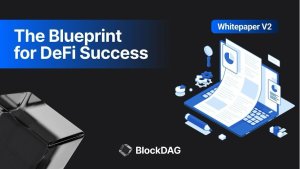SFO’s “expert” comes under fire but Alex Pabon loses LIBOR manipulation appeal
The Court of Appeal agreed that SFO’s expert Saul Haydon Rowe fared disastrously but Pabon’s conviction was safe.

The Court of Appeal has earlier today nixed an appeal by former Barclays Bank trader Alex Pabon from a ruling from 2016 that convicted him of rigging LIBOR.
In the Judgement, Lord Justice Gross starkly criticised the lack of expertise of the expert used by the Serious Fraud Office (SFO) during the trial and retrial of Pabon but conceded that the conviction of the ex-trader was safe.
The Appellant, Alex Pabon, now aged 39, together with a number of co-defendants, all employees of Barclays Bank PLC, Peter Charles Johnson, Jonathan James Mathew, Stylianos Contogoulas , Jay Vijay Merchant, and Ryan Michael Reich, faced a single Count of conspiracy to defraud, alleging that they dishonestly rigged LIBOR.
The Particulars of the Offence on the Indictment alleged that the Appellant and co-defendants:
“ ….between 1st June 2005 and 1st September 2007 conspired together and with other employees of Barclays PLC (LON:BARC) and its associated entities (Barclays) to defraud in that:
- knowing that Barclays was a party to trading referenced to the London Interbank Offered Rate for US dollar (Dollar Libor);
- they dishonestly agreed to procure or make submissions of rates by Barclays, a panel bank, into the Dollar Libor setting process which were false or misleading in that they:
- were intended to create an advantage to the trading positions of employees of Barclays;
- and deliberately disregarded the proper basis for the submission of those rates thereby intending to prejudice the economic interests of others”
The sole focus of the intended appeal concerned the conduct of an expert witness, called by the Prosecution (that is, the SFO) at the Appellant’s trial and the retrial, Mr Saul Haydon Rowe. At the retrial and following cross-examination on new material, not available at the Appellant’s trial, Rowe fared disastrously.
Even for the SFO, Mr Hines QC has accepted that Rowe had not complied with his duties as an expert. The SFO had itself had no inkling of Rowe’s want of expertise (other than his lack of trading experience, known to all at the trial); this was his third “outing” in LIBOR trials.
During the proceedings, Rowe turned to actual experts for advice. Overall, between the conclusion of his evidence on April 13, 2016 and resuming his evidence on April 14, Rowe exchanged some 26 texts or e-mails with these real experts. When questioned on April 14, 2016, however, he made no mention of his contacts with these experts.
In the Judgement, the Court of Appeal notes that “expert evidence must be expert; it can only be such if it is within the expert’s area/s of expertise; if the so-called expert witness gives evidence outside of his area/s of expertise it is both of no use to the jury and corrosive of the trust placed in such witnesses”.
Rowe signally failed to comply with his basic duties as an expert. He signed declarations of truth and of understanding his disclosure duties, knowing that he had failed to comply with these obligations alternatively, at best, recklessly. He also did not inform the SFO, or the Court, of the limits of his expertise. He strayed into areas in his evidence (in particular, STIR trading) when it was beyond his expertise.
“We take a grave view of Rowe’s conduct; questions of sanction are not for us, so we say no more of sanction but highlight his failings here for the consideration of others”.
However, when addressing the safety of the Appellant’s conviction, the Court stressed that Pabon himself admitted and averred seeking to move the LIBOR rate to suit his book and to favour Barclays. His admissions in the original Grounds of Appeal were extremely damaging too. Further, the Court makes reference to certain of the Appellant’s e-mail communications, highlighted by the prosecution.
The SFO identified some 120 requests from traders to the LIBOR submitters, Johnson and Matthew, in London. By way of examples relating to the Appellant, there were the following:
The Appellant sent Johnson an e-mail on the 28th November 2005, concerning the 1 month fixings, stating
“1350 contracts. We need high one month, we need to get kicked out, 1350 eurodollar contracts”;
The Appellant sent Contogoulas e-mails, saying,
“Tell PJ [Johnson] to keep LIBOR low” and, on the 29th December 2005, “Need low three month and high one month. Tell him that is the carry on the OIS [i.e., Overnight Index Swap]”;
Another piece of correspondence says:
“PJ’s gotta jam that shit tomorrow”.
With regard to all this evidence, the importance of Rowe’s testimony could only have been of the most limited kind.
In all these circumstances, notwithstanding the firm conclusions the Court have reached as to Rowe, it is unable to conclude that the Appellant’s conviction was unsafe.









